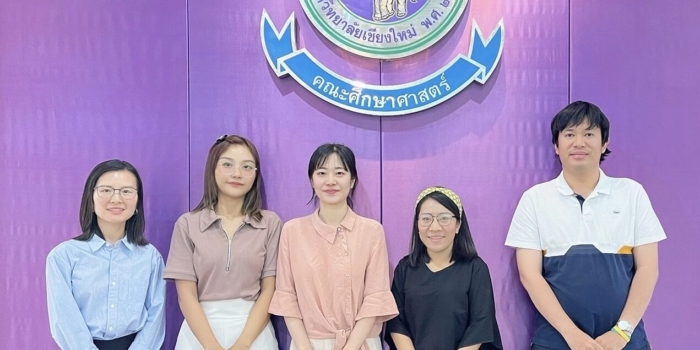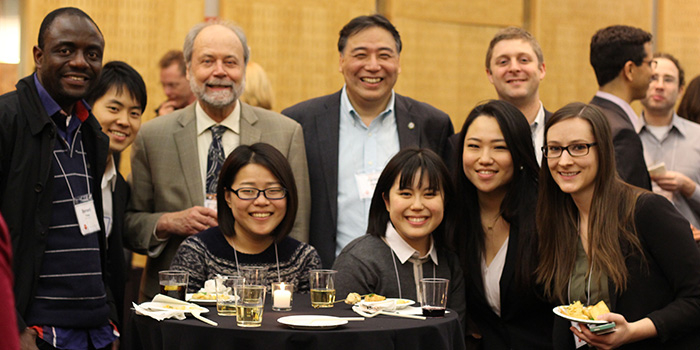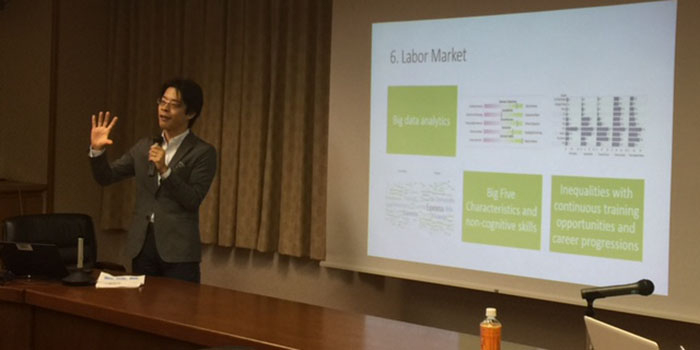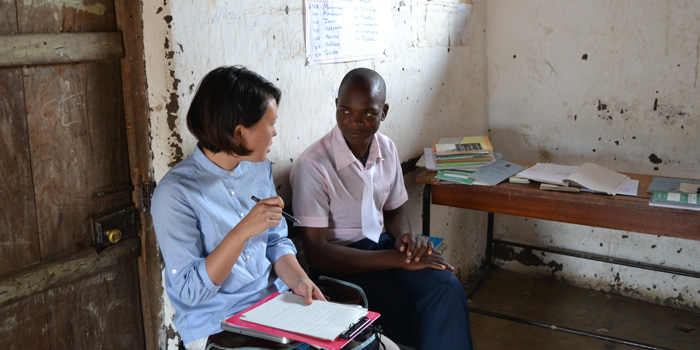It was my great privilege to conduct an internship at the Faculty of Education of Chiang Mai University (CMU), Thailand from February 11 to 25, 2024. During my stay at CMU, I was under the supervision of Dr. Nannaphat, who is currently initiating international cooperation and diversified academic interactions in the Division of Social Science Education at CMU. Upon arrival, I had the opportunity to visit the Faculty of Education at CMU, where I met and interacted with my supervising professor. This initial meeting allowed me to gain insights into the overall structure of the faculty and familiarize myself with the composition of the staff. Additionally, I attended a lecture conducted by Dr. Nannaphat on the development of the UN and SDGs. The lecture was aimed to better integrate these concepts into practice for undergraduate students.
One significant aspect of my internship involved presenting my research proposal and preliminary findings to Dr. Nannaphat. Her valuable comments and suggestions, incorporating the local Thai context, were instrumental in refining my research direction. Subsequently, attending lectures and seminars was a key component of my internship experience. I attended a lecture by Dr. Nannaphat on ‘teachers’ and the ‘pedagogy of equity education.’ During these lectures and seminars, I engaged in group discussions and provided implementable solutions tailored to various communities. Additionally, I joined a seminar for doctoral students, which featured documentaries on ethnic minorities and refugee camps, sparking insightful discussions.
In addition, I had the privilege of making field visits to local schools during my internship, including a primary school and a secondary school. Under the guidance of Mr. Pat, who is a leading staff in charge of the visitors’ orientation at Phra Non-Primary School, I observed the integrated curriculum of a public primary school, gaining insights into the curriculum and teaching situation in Thailand. I also participated in classroom observations, including English, Science, and Mathematics classes, providing a comprehensive understanding of the pedagogical levels across different grades. To further broaden my perspective, I visited the KWC Secondary School, interviewed the lead teacher, and observed morning classrooms. This experience allowed me to understand the subject setup and teaching methodologies at the secondary level in Thailand.
Moreover, participating in the poster presentation session in the Department of Education of CMU marked a significant highlight of my internship. During this session, I had the opportunity to showcase my research and receive valuable input and critiques from a diverse audience, including Ph.D. students, fellow researchers, seniors, and Dr. Nannaphat. The interactive nature of the session formed a constructive exchange of ideas, contributing to the refinement of my research direction. Interestingly, the discussion also brought to light concerns about the evolving reading habits of secondary school students in Thailand, particularly the noticeable increase in the use of electronic media post-COVID-19. Recognizing the relevance of this issue, I will endeavor to explore new variables using the latest PISA 2022 database, aligning my research with the rapid development of local digitization. The insights gained from this session not only enriched my research scheme but also provided a valuable perspective for addressing contemporary challenges in the educational landscape.
Finally, I would like to express my heartfelt gratitude towards my academic supervisor, Professor Keiichi Ogawa, for his unwavering support and guidance throughout the duration of my internship. His mentorship played a crucial role in shaping my understanding of the research field and navigating the challenges encountered during the internship. Furthermore, I would like to extend my sincere appreciation to my internship advisor, Dr. Nannaphat, and the faculty members at Chiang Mai University, whose dedicated supervision and constructive feedback enhanced the quality of my internship experience. I am truly grateful for the invaluable mentorship provided by both, as their support has been noticeably conducive to my academic journey.
Authored by Yinkan Gao (Master’s Student)
Related






